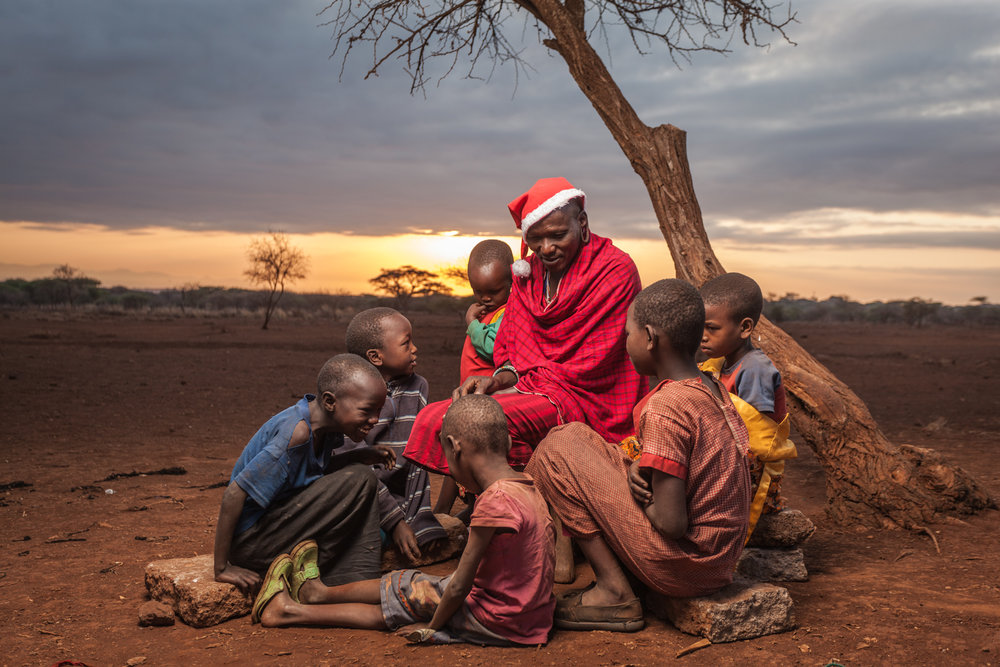
Christmas is a significant festival in Kenya because many Kenyans are Christians. It is a family celebration, as it is in most countries. To spend the holidays with their families, many individuals travel from the city to their hometown villages. It is frequently the only time of year when the entire family gathers. As a result, roads in and around large towns such as Nairobi and Mombasa are frequently congested, with traffic backups lasting hours. During the holidays, though, cities often appear to be abandoned.
Colorful garlands and balloons, flowers, and green leaves are frequently used to decorate churches and homes in cities. It’s also possible that a Christmas tree will be present! Cypress trees are traditionally utilized for this purpose and are lavishly adorned. Artificial snow is frequently seen in front of significant structures, such as shopping malls.
Occasionally, you’ll see someone dressed as Santa Claus. He does not, however, arrive in a reindeer sled like the others, but rather on a camel, a car, or even a bicycle. These extremely western traditions are unique in rural settings.
On Christmas Eve, many devoted Christians attend church around midnight. They sing, recite poems, dance, and act in nativity plays there. Following the service, the young people often party and dance into the early hours of the morning. On Christmas morning, there are also church services, so people who haven’t danced all night can still commemorate the holiday.
Christmas supper is an essential element of the Kenyan holiday season. Typically, a barbeque is held with friends and neighbors, with meat such as beef, chicken, sheep, or goat being served. “Nayama Choma,” grilled goat meat, is the most famous Christmas dish. It is Kenya’s and Tanzania’s national cuisine, and its name means “grilled meat” in Kiswahili. It’s served with flatbread and rice. For the special occasion, some families make their own beer. City dwellers generally congregate in a pub or restaurant with friends or family. The ritual of “Christmas Carolling,” which involves parading around and singing Christmas carols, is becoming increasingly popular. Small donations of money or candies are given to groups as they move from home to house singing. The majority of donations go to the church.
In many English-speaking nations, the second Christmas holiday is known as Boxing Day. People continue to rejoice, visit family and friends, or rest after previous celebrations on this day.




